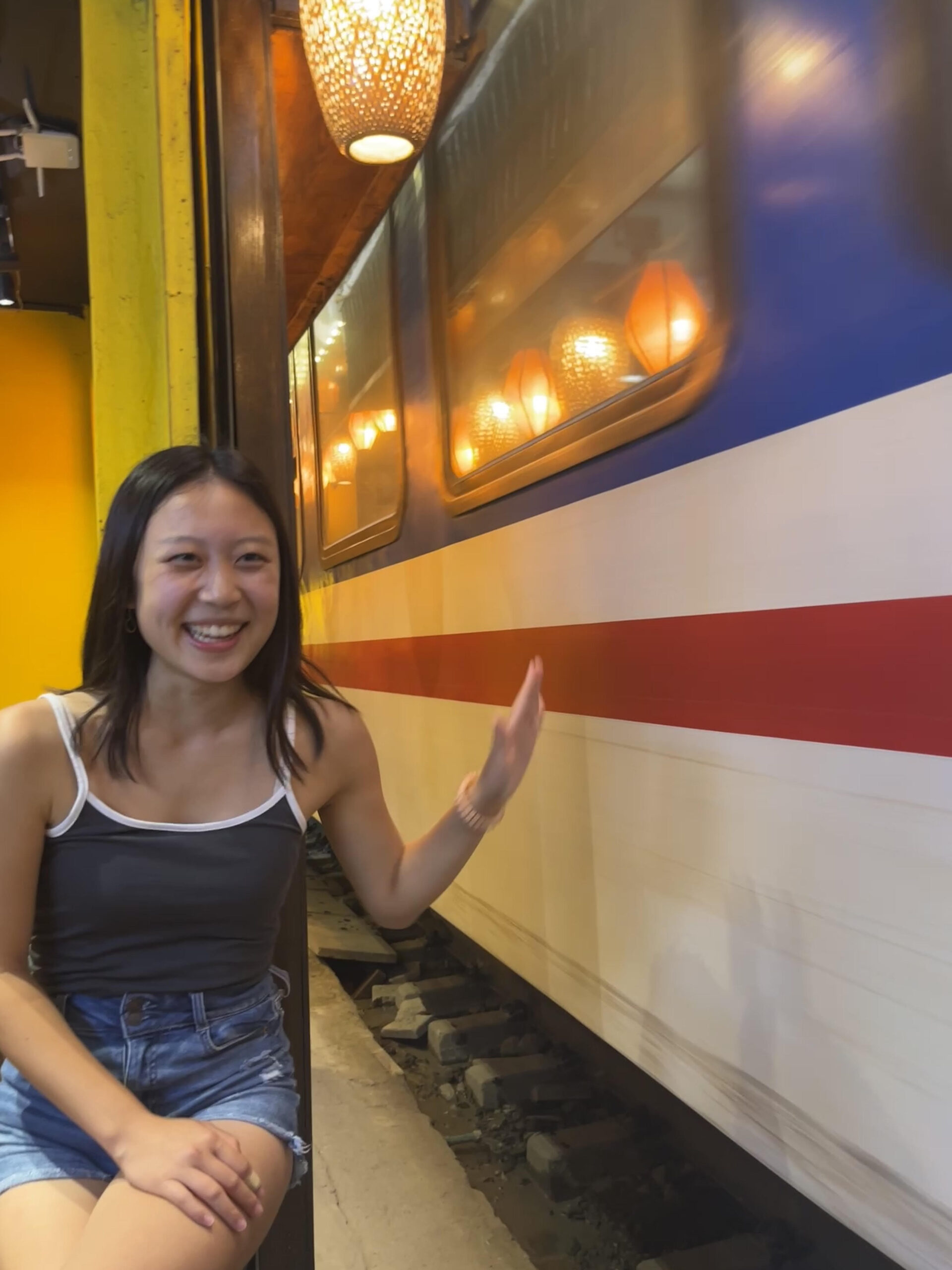
Finding Myself in Who I am Not
SA: Singapore Management University, Singapore
Evelyn, one of the Semester Abroad Correspondents, shares her experience abroad during the Spring 2025 semester. Follow along with the group of correspondents on our blog and look out for their images on the @pennabroad Instagram feed.
I am glad I only had one semester in Singapore. Not that I am anxious to leave, but because I have learned there is beauty and urgency in transience. In the way essays need deadlines–including this one–the clear expectation that my time here would be limited made me intimately aware of how I chose to spend each progressively smaller unit; months into weeks into days into hours. It warned me against complacency, from overusing the half-hearted excuse of “later” to endlessly, contiguously pick what is “practical” over what I prefer. When there is no “later,” there is only “now.” And learning that, I have found, is where survival ends and living begins.
The entire semester felt like an ending—I must confess, I began writing segments of this piece just a week in. A banner over my head counting down my 14 weeks; half-remembered dreams centered around the fact that there will never be enough time to do anything fully, much less everything. In truth, this upcoming phase of my life will be full of endings–of college, last vestiges of childhood, and alternative versions of who I might have been and who I am becoming. But if a life is the sum of its endings, then I cannot afford to equate my endings with grief. This semester was a toast to creation—not for permanence, but for myself. And perhaps, though this experience was just for me, it may be important anyway. It is difficult to capture such a transformative journey into the formalities of lexicon bound by grammar, of pixels on a screen, to offer up an imperfect imprint of what feels like a piece of my soul. I will try anyway.
Alone but Not Lonely
After the first couple of weeks of meeting as many people as humanly possible, I dedicated myself to spending time with the people I genuinely connected with rather than spend my precious few evenings on superficial bonding. I did not meet most, or even much, of my exchange class. I have never stepped foot into a Singaporean nightclub. I kept my personal study abroad Instagram account under 100 followers, all of them people I’ve met before. I made approximately 5 friends. In short, I spent all 14 weeks of my semester abroad choosing me.
With time the most limiting resource, and as someone pursuing an economics degree (by technicality), I subconsciously framed every decision I made through its opportunity costs. For me to agree to something, it had to bring me more joy than spending a day by myself wandering through the city or reading a library book in my favorite cafe–a surprisingly high bar. Away from the social pressures of knowing people in the city or having to adhere to the adult formalities of grabbing coffee with loose acquaintances on an infrequent yet regular basis, I did not have to promise away the best hours of my weekends to “catch-up” with people who I could not rely on in the moments we now recap over iced lattes. I learned to openly enjoy my own company and stop wondering whether something is wrong with me–because frankly, even if it did indicate a pathological abnormality, I would continue to enjoy being by myself anyway.
When I am on my own, I can meander aimlessly. I become a ghost among flesh and blood. I stop and go as I please. I imagine random turns as fate, the shifting pavement leading me to where I am meant to be. If I feel emotionally drained, I do not have to perform–no hiding my instinctive RBF, no compromising on a specific destination or time, no worrying about filling the next break in conversation. Alone, I quietly watch mothers following shaky-legged toddlers and schoolchildren in crisp uniforms and weary office-workers commuting home and cyclists weaving around pedestrians and couples holding hands and cashiers scrolling on their phones behind their tills and age-bent elders resting against walls. When I dissolve into a crowd, nobody among strangers, I feel a deeply satisfying melancholy. So the world does not stop for anyone. So each of us is the center of a universe. So we are all outstretched hands and uncertain hearts and missing pieces and searching for home. So we are born and we die and everything in between is undetermined and that is the timeless story–of Pandora’s Hope or Abrahamic free will or any other meta explanation to try to give meaning to painful existence. And after I have recharged my social battery by becoming an invisible bystander, I return to my loved ones with renewed appreciation that I find meaning through sharing life with them.
I know now that I am no social butterfly–and yet, I discover the best parts of myself come from the communities that have found me.
On Identity
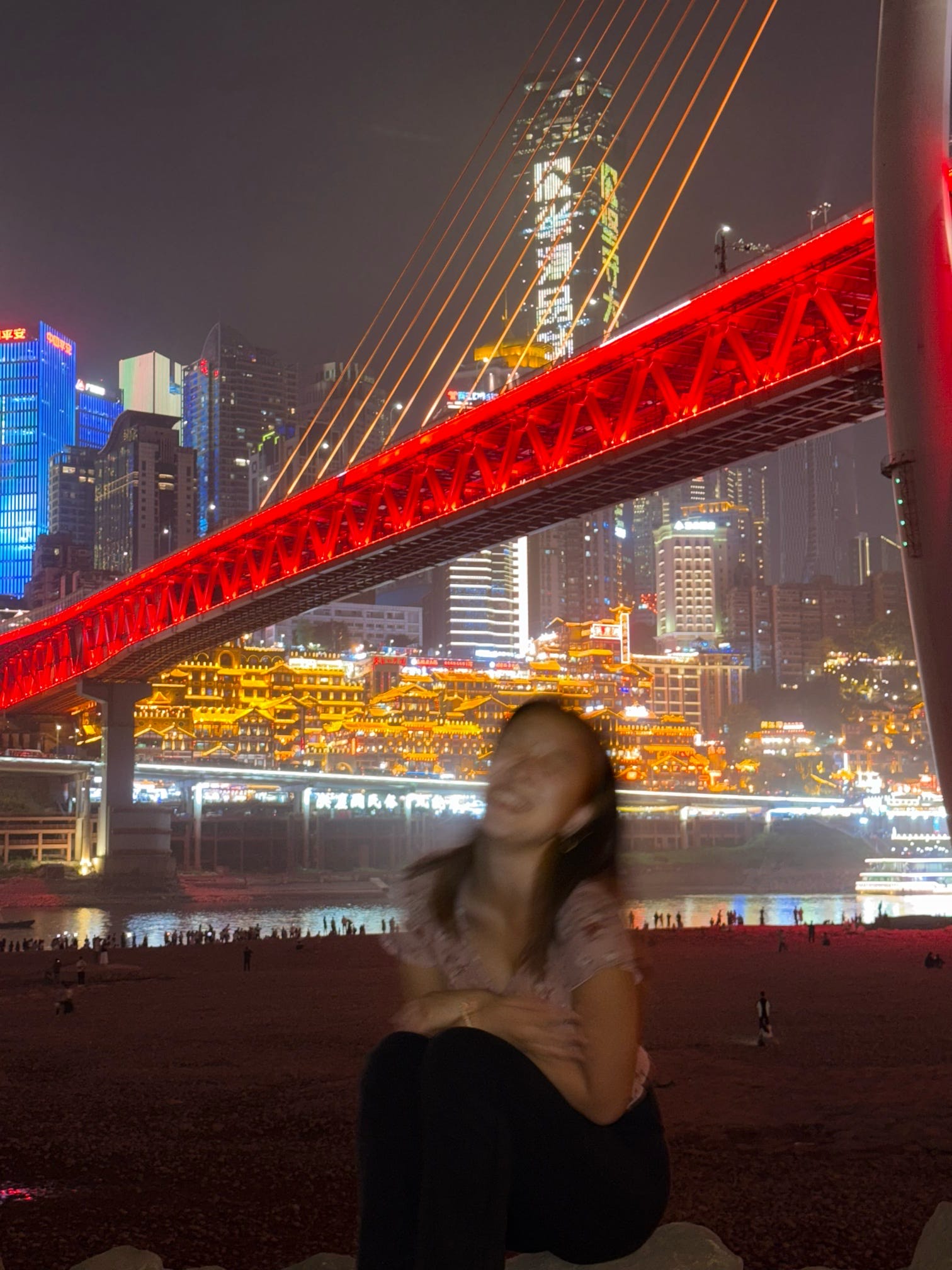
Before I arrived in Singapore at the start of the semester, I spent some time visiting my paternal grandfather and step-grandmother in Yueqing, China. In the midst of an animated commentary on the future of American society, she briefly mentions “real Americans.” When I ask her to clarify, she says matter-of-factly, “The ones with yellow hair and blue eyes.” My step-grandmother’s casual statement wasn’t malicious, and I didn’t take it that way, but it did initiate a deeper question of identity that I spent the semester grappling with.
I was born in San Antonio, Texas and spent the first 18 years of my life there. My passport has always been navy, with “United States of America” embossed in gold on the front. I woke up at 7AM to vote in the last election. Last summer, I was summoned for jury duty. And yet, to some people, “American” is a phenotype in addition to a nationality–a phenotype I do not fit. I should not feel the need to “prove” my American-ness, and yet here I am. Because, if I cannot be properly defined by a single label–like “American”–then I will not be easily digestible for others. More importantly, it means I have to decide for myself which parts of my identity I want to be defined by.
Singapore-ish
In Singapore, for the first time in my life, I was the default. It happened in obvious ways, like how food court cashiers would initiate transactions with me in Mandarin, how strangers rarely asked where I am from (no, where I am really from, if my initial response is “the States”), how I would be handed chopsticks while my non-Asian exchange friends were offered forks at the same table. It also happened in ways I didn’t consciously realize matter as much as they do. When I went shopping for replacement glasses after accidentally snapping my old ones, I didn’t have to seek out “specialty” glasses with elongated nose pads to fit my smaller nose bridge. The generic frames I picked up from the standard rack just…fit. Beauty ads featured models with my features, not as token side characters or diversity stunts, but as standard campaigns. Clothes and accessories fit true to size; front aisles at the pharmacy showcased products designed for my skin and hair type; Chinese New Year warranted a school holiday; desserts and drinks were consistently “not too sweet,” just the way I like them. In Singapore, I experienced the privilege of being in the majority. In Singapore, I am the target audience.
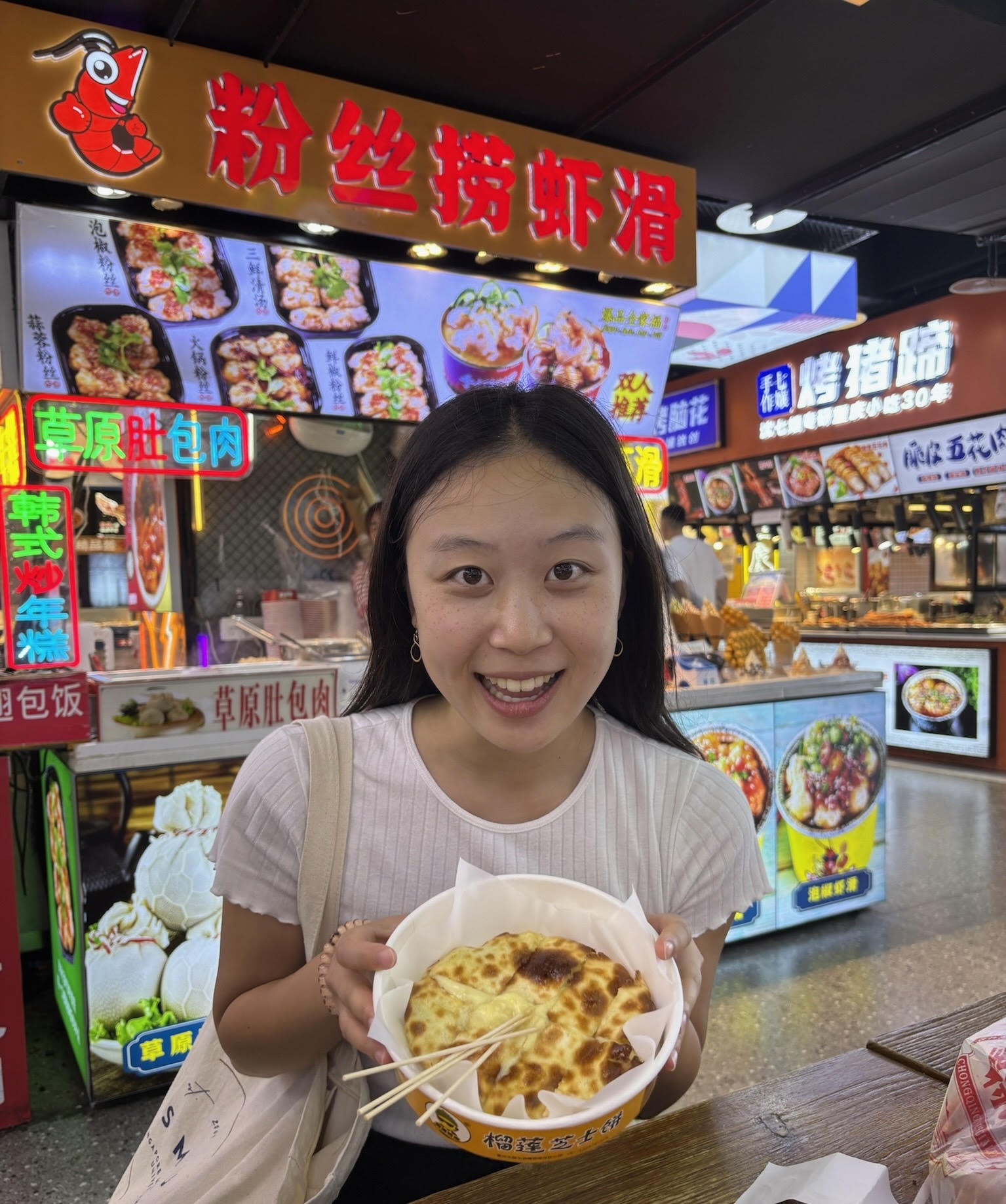
The comfort foods I grew up on became ordinary, no longer novelties only found in tucked-away Chinatown streets in the shadows of big cities or in my parents’ kitchen—sweetened soy milk in flimsy plastic cups, century egg and lean pork porridge in small china bowls, Chinese chive and shrimp dumplings, bitter melon, corn-flavored ice cream. I did not have to preface my loving, but decidedly non-Western, relationship with my parents with a long prologue of how our dynamic is shaped by millennia of Confucian tradition and decades of recent Chinese political history—it was simply understood. My family’s unique story of immigration and survival was just another outcome of a shared history. When talking about food with local classmates, I did not have to go through an elaborate show-and-tell (coupled with a preemptive justification for its cultural significance, almost as a partial apology for upsetting Western notions of what food should and should not consist of), just to share my favorites– 粉蒸排骨, 炸茄盒, 粽子, 羊肉串. Eating an entire fish–head, tail, and eyeballs–was a typical meal, not an “adventurous” delicacy reserved for the strong-stomached. This is not to sound ungrateful or intolerant. I am always happy to share my culture with those who wish to learn. What was special about Singapore is that I didn’t have to.
Still, I am not Singaporean. Cashiers would switch to English as soon as they realized I was a “banana”– yellow on the outside… you get the reference. I don’t know metric measurements, and I write dates as month/date instead of date/month.
On a more fundamental level, my Singaporean peers did not understand the demographic environment I was raised in, simply because they have not lived it. How do I explain to someone who shares my features, who grew up as part of a privileged majority, that though the features we share are our greatest asset in this society, they were my biggest insecurities growing up as a minority in central Texas? How do I share, without sounding like I am fishing for compliments or an internalized racist, that I never felt beautiful as a child because of them, an issue I still occasionally struggle with now? How do I explain the weight of being a child of immigrants, where my success reflects a multi-generational effort marked by unthinkable sacrifice, where I live by the self-imposed pressure of living up to opportunities carved out for me by my parents, who had nothing and managed to give me everything? How do I explain that I can count on one hand the number of times I have met my extended family, all still in China, or that my parents managed to raise three children while working full-time jobs in a non-native language, with no support system or community other than each other? How do I explain that, despite it all, no matter where I am, I always think of Texas when I think of home?
How do I explain who I am to someone who does not understand what made me?
Americana
Just a few weeks into my semester, I found myself talking to a local. She seemed surprised when she learned I was an exchange student. Curious, I asked her if she thought I was Singaporean. Sheepishly, she says, “You look Singaporean, but you opened your mouth and all I could hear was ‘American, American, American!’”
I laughed, then asked, “Is that a good thing or a bad thing?”
She responded (almost too quickly), “It’s a good thing! So cool!”
Before living outside the US, I had never put much thought into what it means for me to be an American. Perhaps that is what privilege is–what I do not have to think of. I hoped that in Singapore, I would learn how the world looks when Singapore is placed in the center instead.
To my (possibly unwarranted) surprise, American influence remains inescapably influential, even from oceans away.
(Side note: I did get brief exposure to some Singaporean alphabet soup concepts like BTO housing, the HDB, the PAP, PSC scholarships, and mandatory NS, but never got a formal overview of Singapore as a macro institution across a geopolitical or financial lens, and especially not to the extent that American institutions were covered).
The majority of the case studies and research papers explored in my classes were American. Once, my psychology professor was summarizing the results of an American experiment that measured in inches, and he felt compelled to clarify that “an inch is about 2.5 cm” to the class. Somehow, almost every lecture mentioned the US in passing, whether it was a discussion on the election, or the effect of new tariffs, or the prohibitively high cost of higher education, or American sustainable finance reporting methods, or how strange it is that Americans don’t expect a real response to “How are you?”
Singaporeans and non-American exchanges alike described to me their past trips to the US, or how New York City was their dream, or how they would love to visit someday, or how they wished the visa process was easier. On road trips, the European exchange students I occasionally traveled with knew every word to “Party in the USA.” They’d watched more Hollywood movies than I have. They follow the NBA and cheer for the Knicks. They are fascinated by red solo cups and Greek life and high school lockers and cheerleaders. They ask if Texas is really that big (no–bigger). In this sense, to many, America is aspirational.
On the other hand, the few times I was reduced to “an American” by non-Americans was the most offensive insult that I encountered while abroad–not because I am ashamed of my nationality, but the very opposite. To be relegated to just “an American” was derision belied by stereotypes of ignorance and self-obsession. It insinuates that as a product of America, I am a lost cause by nature. Worst of all, I was only ever name-called this way when I was trying to learn more about another culture–like when I asked a Turk whether she could consider a 3rd-generation Arab in Turkey to be culturally Turkish, and she said that only an American would be stupid enough to ask that question (and, by the way, no). She was one of the people to have previously told me that moving to NYC was her lifelong dream. Funny, how perceptions of immigrants change when someone becomes one.
I suppose I took the insult of “American” so personally because, as a second-generation American pursuing the tantalizing promise of the American Dream, the greatest gift I have received is the citizenship I was born into. To make a mockery of something so sacred to me, rooted in the other’s ignorance and bigotry while they accuse me of it, is not something I take lightly. If I am to be called ignorant, let me be ignorant by my own merit—not as a byproduct of where I was born. Dramatic? Perhaps. But I found that in any multinational room, people quickly become nationalists. National epithets were plentiful and directed indiscriminately, as if the only common denominator between diverse groups of people is a shared hatred of diversity. Eastern Europeans jeered at Western Europeans for a purported superiority complex, Western Europeans retaliated with poverty jokes. According to the reductionist characterizations I encountered, Germans lack a sense of humor, Scandinavians lack personality, the Dutch are cheapskates, Italian and Irish men are not to be trusted, and above all, hate the French (for what? Everything). Ironically, if you asked, they would say that among these countries, only America has a history of systemic racism. Interestingly, I didn’t notice any vitriol between Southeast Asians other than objective comments on relative economic prosperity or key tourism destinations–but maybe they did a better job of hiding their true opinions from me than the Europeans did.
**Of course, these are reductionist generalizations of my own, based on anecdotal experience–more for humor than genuine critique. I don’t mention the few deeply meaningful conversations I had over the course of the semester, in which we explored the nuances of race, economic prospects, perceived cultural differences, and nationalist movements on xenophobic tendencies.
Where I left or where I’m going?
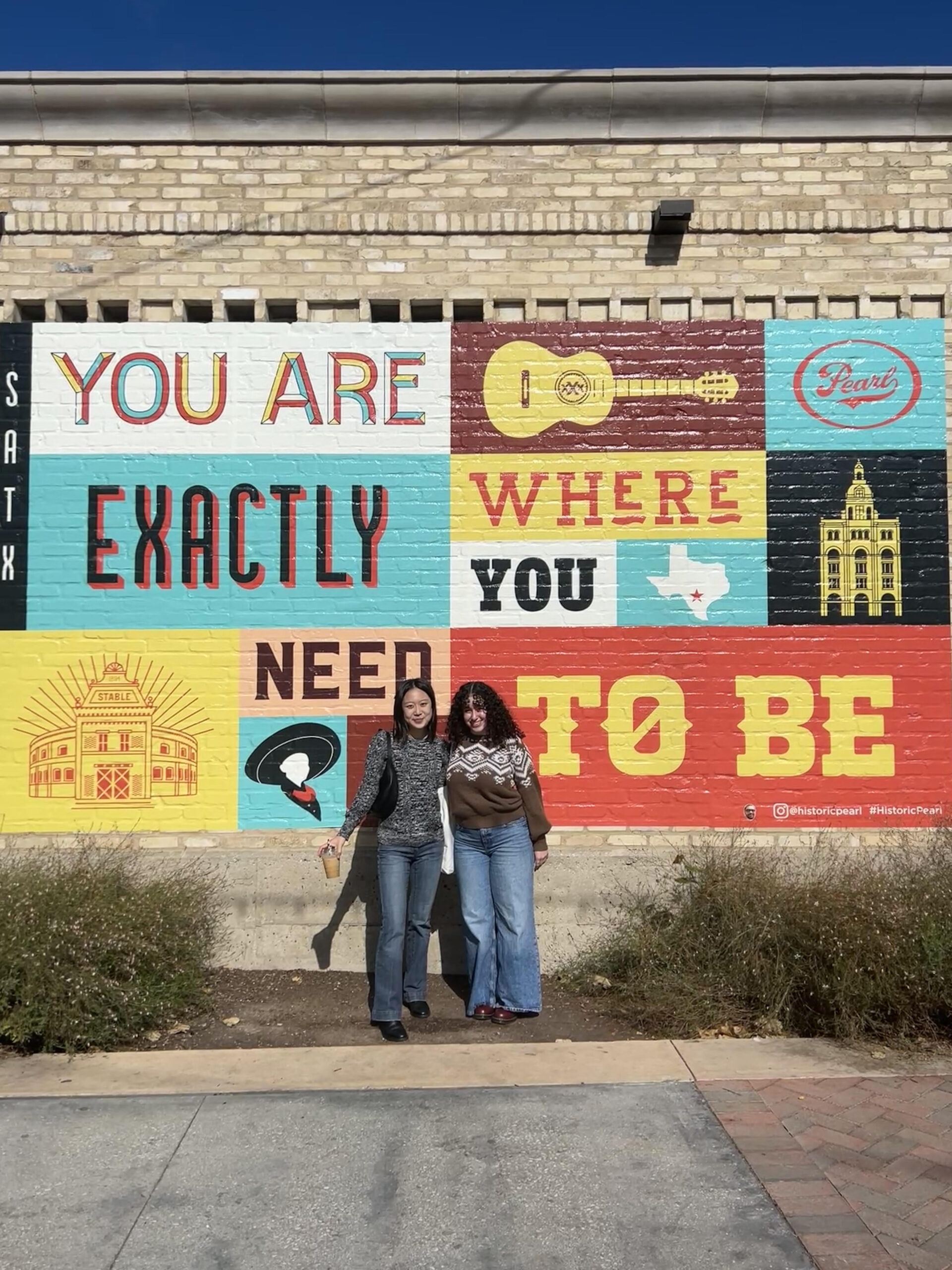
The question I was asked most often, yet never found a perfectly comfortable answer to, was “Where are you from?”
When the question came from taxi drivers or tour guides I found online while I was traveling throughout Southeast Asia, I defaulted to, “I come from Singapore.” Technically, not a lie. But when it came from people I didn’t need to mislead, it got trickier. Do I say Texas or the US? Do I say I was born in Texas but go to school in Pennsylvania? Do I say I was born in Texas but go to school in Pennsylvania but, if you’re asking to visit me, I’ll be in New York this summer? The truth is, when you have made your home in many places, you can never again be fully contained to just one.
Another fact that came with unexpected complexity–being a Penn student. When I am at Penn, surrounded by college students who act like college students, it is easy to forget that I attend one of the world’s leading academic institutions with a global recognition. When I am in San Antonio, where elite college culture is virtually nonexistent, no one knows (or cares) what school I go to–so long as I’m not an Aggie (if they went to UT) or a Longhorn (if they went to A&M). At the end of my senior year of high school, a teacher asked what I was doing next, and I answered, “I’m going to Penn.” He responded with, “Oh, Pennsylvania? I have an aunt that raises cows in Western Pennsylvania!”
I prefer it that way.
In Singapore, people recognized Penn.
It made it easier for me to introduce myself to my professors, (“Hi, my name is Evelyn and I’m an exchange student from Penn this semester. Can I ask you about…”)
It made for an easy continuation to conversations with strangers after we had run out of other things to share; dispelling their glamorous imagination of the Ivy League with my dining hall horror stories.
It allowed people to judge me before they met me; by the end of the semester, some of the friends I’d made felt comfortable enough to tell me they thought I’d be stuck-up or out-of-touch back when all they knew about me was what school I come from.
I missed Penn while I was gone–avoiding flyers on Locust, the Eagles winning the Superbowl, my friends, Fling–and felt pride every time I saw “University of Pennsylvania” referenced on a professor’s slides. At the same time, I wanted to be judged on first impression by the merits of my personality rather than by the reputation of the school I left behind. Talk about first-world problems–but I sometimes pondered this when I struggled to fall asleep.
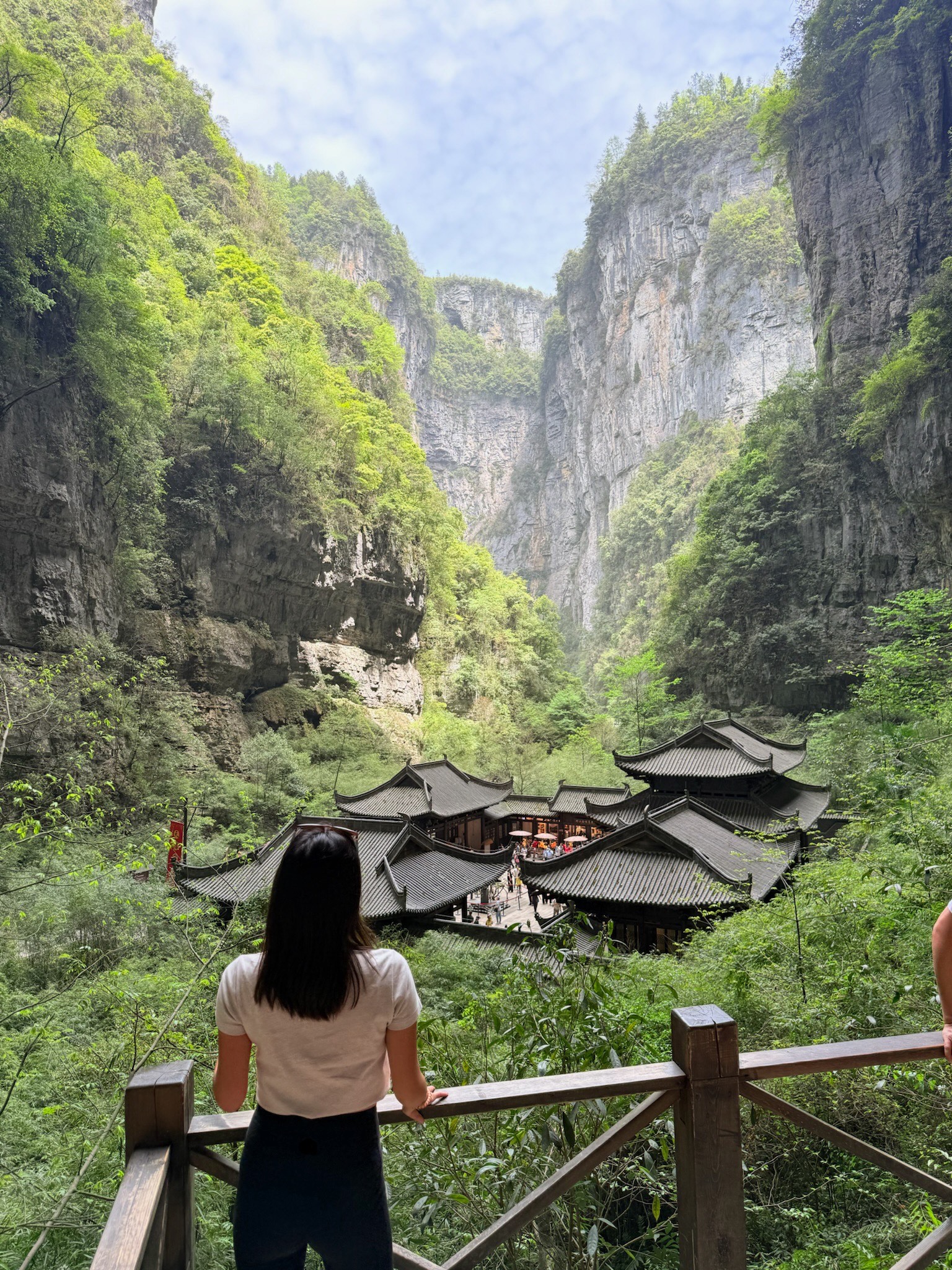
Progress Report
An identity is a tricky thing; it is continually evolving; it seeks conflict. It hopes to say: I am unique, yet I am not so unlike you; I am complex, yet still decipherable by you. It tells you there are differences you should hide and differences you should flaunt. It tasks the environment you are in to determine where your differences lay. It tasks you to determine which ones will define you.
I am still figuring out who I am. For the sake of optionality, I hope it takes me a long while. In the meantime, you will find me learning who I am not.
On Cultural Shock
Here’s a fun fact for you: SMU was founded in 2000, and its creators spent a year at Penn to model it after Wharton. In many ways, the typically vast differences of a study abroad compared to a regular semester were tempered by the fact that I was at a replica of my home university. On the other hand, no matter how many shared course codes SMU has with Wharton (ACCT101, anyone?), some contrasts could not be so subtly bridged.
For the People or For Myself?
I took a psychology class titled, “Work, Play, and Life” (WPL). It is one of the most popular classes at SMU, and by the grace of the course-bidding gods, I somehow got into it (as 1 of 2 non-local students in the 40-person class). I have spent hours raving about it to anyone who will listen. It is a key highlight from my semester abroad; it ranks in the top 3 classes I have ever taken.
In one class, Brandon (the professor) asked, “What is the purpose of playing games?”
After 5 minutes of students raising their hands to answer the question, answers included:
“To win,” “To practice real-life scenarios in a sped-up timeframe,” “To challenge yourself.”
Not a single student said something along the lines of, “To have fun with friends.”
I also took a “Happiness and Suffering” class that was structured as a philosophical Socratic seminar. My Singaporean peers often surprised me with their answers to discussion questions like, “What would bring you happiness?” and “Would you choose to be poor and happy or wealthy and sad?”
Often, they would openly choose the more materialistic answers. Contrast this with Penn, where even if a student prefers material success, they tend to outwardly profess that they are seeking happiness. When I overcame my initial shock at the Singaporeans’ honesty, I realized that it is not because they are somehow more shallow or covetous than my American peers. In Singapore’s cultural context (like much of East Asia), the basic unit of society is the family, not the individual. Individuals are supposed to provide for, and “give face” to, their family first, their community second, and themselves last. Pursuing financial well-being thus becomes a point of pride: that one is upholding their duty to provide for those they are responsible for. On paper, SMU students would rather be miserable while contributing their “fair” share to society than be happy and a burden to others. The question of “poor and happy vs wealthy and sad” was actually one of “selfishness vs selflessness.”
On the other hand, in the US, where individualism is ingrained in the very constitution, it is controversial to say you are pursuing anything other than personal contentment. Even financial success, if it is to be pursued, must be done so under the guise of a means to happiness. For wealth to be an acceptable goal, it must simultaneously bring happiness, whereas in Singapore, wealth is a worthy cause even at the expense of happiness. It is rare for an American to confess to wanting to be a billionaire. Instead, they romanticize “financial stability” that will give them the freedom to pursue their passions. This is a common theme of existential crisis among Penn students.
Such a dichotomous divergence in mindset is misleading, however. SMU students also experience existential crises over their path and purpose in life; in private, some Penn students will confess that they believe they will spend the rest of their lives climbing the professional ladder, long after they could comfortably retire, simply because they do not know what else they would do. Despite different approaches to the role of “work” in achieving purpose, both Singapore and the US are known for unforgiving work cultures and the idealization of workaholism. Furthermore, what is culturally dictated is not necessarily how individuals actually behave, or how they ultimately lead their lives. Culture simply tells people what their responses, and preferences, should be. Realizing this makes me more conscious of my internal decision-making. Is happiness selfish or a human right? Regardless of the answer, will I choose it anyway?
On Society
In Harmonious Ambivalence

Singapore is diverse. Chinatown to the south, Little India in the center, Geylang Serai (Malay) to the east. The country was founded on the premise that all ethnicities should have equal standing in Singaporean society. In fact, Lee Kuan Yew (LKY) cited the primary reason for Singapore’s separation from Malaysia in 1965 as a dispute over the Malaysian government’s insistence on maintaining “Malay dominance” even if it meant forgoing talent, as opposed to Singapore’s preference for strict meritocracy. LKY, a Cambridge-educated lawyer, combined the best of Confucian thinking with Western democratic institutions to transform Singapore from an impoverished island with virtually no natural resources into the world’s 4th richest city, wealthier even than London, in half a century. Much of Singapore’s success is credited to its embrace of diversity.
Still, diversity in Singapore is not entirely frictionless. There is an anecdotal concept of Chinese privilege–that as the majority ethnic group, those of Chinese descent receive preferential social treatment. Though all of Singapore is relatively safe, I received occasional warnings from locals to avoid Little India at night. The boundaries between the various ethnic enclaves were impossible to miss: immediate transitions in architecture, ethnic composition of the crowds on the streets, and languages on restaurant signs. Clustered friend groups in SMU hallways were relatively homogenous. To be transparent, though it was not intentional, most of the local friends I made this semester had Chinese heritage. Why, in a country known for “racial harmony,” did I repeatedly find myself in groups that ethnically resembled me? My friendships in Texas and Pennsylvania do not have this homogeneity. Maybe it was a coincidence, or maybe I didn’t try hard enough to branch out this semester. Or, maybe there were macro factors at play and I didn’t know how to overcome them.
Public Trust; Private Scrutiny
Singapore is a democracy with effectively a single political party: the PAP. The PAP maintains a somewhat paternal relationship with the people–mutualism demarcated by the promise of political stability, regular government transfers, and high cost-of-living subsidies in exchange for control of the media, election timing, government funding discretion, and National Service conscription.
Though 2025 is an election year for Singapore, the election was not a common topic of conversation for Singaporeans in the months leading up to it; the election was more of a question of how large the PAP’s majority would be rather than an indication of the country’s ideological future. This was in stark contrast to my experience in Philadelphia last fall, in the months preceding our own election.
Such an arrangement, of seemingly unchecked political power and big government, made my American perception of “proper democracy” shudder when I first learned of it. And yet, the Singaporean government remains highly-regarded with the people, seemingly transparent, relatively free of controversy, and with a strong historical record of anti-corruption.
LKY (mentioned above), leader of Singaporean independence, Singapore’s first prime minister, and co-founder of the PAP, remains a popular figure a decade after his death–as if George Washington was recent history. Singapore as an independent nation is only 60 years old. There is a collective pride among all Singaporeans, particularly the “older” generation, that they are building a great nation together. When I confronted my own biases about what government should look like, I wondered that if Singapore’s government is apparently effective and its people generally satisfied, is this “benevolent dictatorship” really a problem? Are my concerns really about abuse of power, or the fact that a single political party might abuse power more easily? Is the polarization of American politics a preferable alternative to Singapore’s PAP?
These are questions I haven’t, and likely won’t, find definitive answers to.
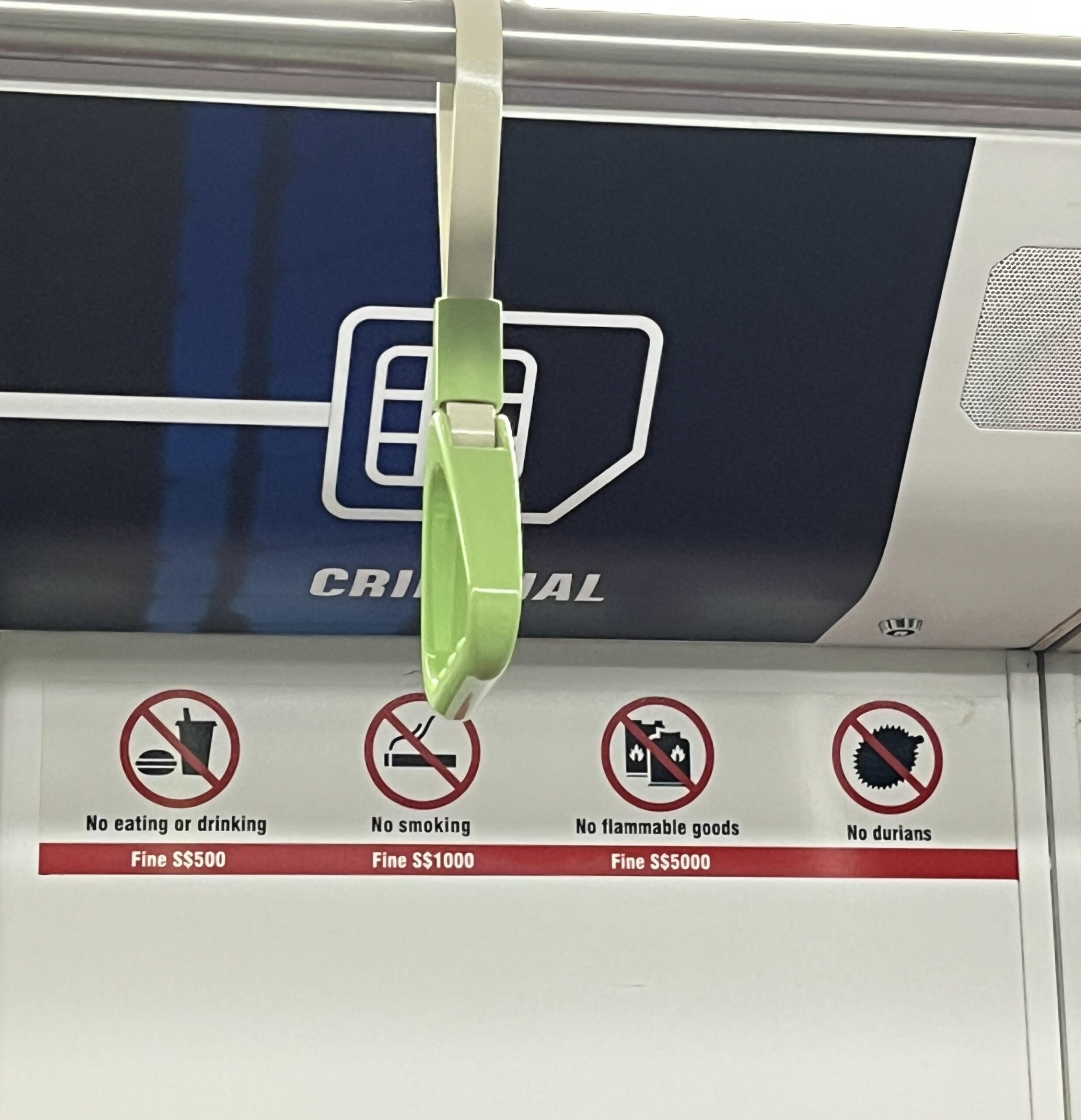
I have seen firsthand the benefits and downsides of Singapore’s strong government. It is the cleanest, safest city I have ever been to. It has one of the highest surveillance camera densities in the world. It has laws dictating almost every aspect of life–on smoking, flushing the toilet, feeding pigeons, walking naked in your own house–but fines are rarely enforced. (At orientation, the presenter joked that Singapore is a “fine city”). Public transportation is spotless, on-time, and highly regulated; no eating, no smoking, and absolutely no durian.
Civilians trust that public officers will protect them, or catch them if they commit serious offenses. National Service conscription aims to build trust between the common people and Singaporean institutions–young men serve 2 years in either the Singapore Police Force or Armed Forces. Pickpocketing is virtually nonexistent. Women don’t have to think twice about jogging alone in the late evening or early morning. Vapes are banned, while alcohol and cigarettes are subjected to high “vice” taxes. Weapons like firearms, pepper spray, and brass knuckles are completely prohibited from civilian possession. Every plane that lands in Singapore warns passengers that trafficking drugs of any kind into the country can result in the death penalty.
Public spending reveals where the government’s priorities lay. There are housing subsidies for engaged couples and cash bonuses for having babies that incentivize family-building. The 6 highest-ranked universities are all publicly funded “autonomous universities”–citizen students pay ~$10,000SGD/year in tuition fees, and the rest is subsidized by the government. Cars are heavily taxed to encourage public transportation use. The government issues merit-based PSC scholarships to its highest performing students, who attend elite universities around the world and return to Singapore to establish their careers in government, the armed forces, or professional service. Singapore follows a mixed healthcare model, where subsidized universal healthcare is offered alongside private providers.
The Singaporean government anthropomorphizes as a strict but indulgent authority–everyone knows the rules, but the rules have a layer of common-sense leeway so long as they aren’t bent too far or ostentatiously. Rebellious Singaporean teenagers are often let off the hook with warnings, to protect their futures. The government works to ensure people have comfortable futures. However, this grace often does not extend beyond citizenship. The government can, and does, deport “nuisance” foreigners, issuing lifetime bans from returning to the country for law-breaking. Short-term public housing rentals are banned, to protect the housing market from tourism. Non-residents are taxed at much higher rates than residents. Public schools have limited spots and significantly higher tuition for the children of expats, forcing many to attend expensive international schools instead. Proof of long-term residency, after stringent government approval, is needed to obtain a local SIM card. And yet, foreigners like myself are drawn to Singapore anyway.
Singapore’s institutional idiosyncrasies took some time for me to get used to–but they never materially affected me. I simply observed the dynamic between its government and its people, its citizens and its foreigners, and I instinctively compared it to the American institutions I am accustomed to. As with all decisions, how a government functions is a balance of trade-offs; present vs. future, breadth vs. depth, priorities vs. afterthoughts. Which system is holistically better, I could not say. Still, encountering such a unique government model was a profound way in which my exchange semester broadened my horizons.
Homecoming
I measure my semester abroad by how I have changed. I stand to the left on escalators in nutcracker posture. I take pictures: of myself, of places, of my friends, of moments that will pass, of what deserves to be remembered. Packing has become second nature, my checklist memorized. Sometimes I make itineraries, sometimes I don’t. I don’t hate the humidity as much as I used to. I am better at reaching out first to make plans. I call my brother more. I take small affronts less personally. I care less what strangers think of me. I’ve started wearing my glasses to social events.
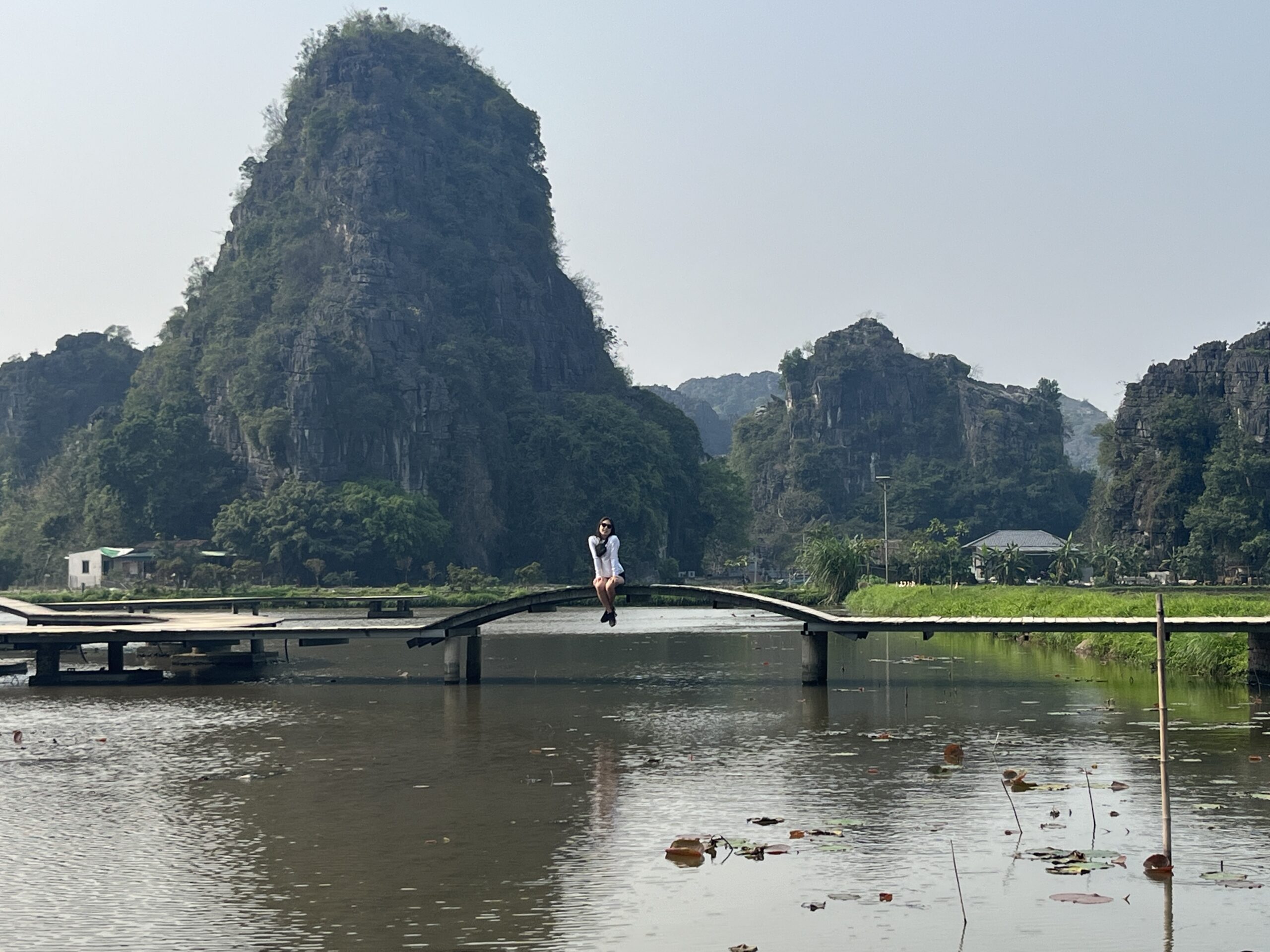
I will miss my semester in Singapore, but I am not sad to leave. My goal was to experience–anything, everything–and that is what I did. I checked dream travel destinations off the list, nurtured fulfilling friendships, and walked aimlessly around new cities from dawn to dusk. I encountered deadlines, insomnia, and conflict. I read novels and climbed mountains, made slide decks and chased sunsets. It was magical and mundane—and momentary.
When, not if, I return, the Singapore I have come to love will be gone—my fellow exchange students dispersed across the globe, my local friends graduated and charting their own paths through life, my tiny bedroom rented to someone else, my student ID expired. Still, I expect the heart of what drew me to this magnificent city will remain: an expectation-defying and multicultural society, warm in every sense, redefining what living can be. At the same time, I will always know where to find my Singapore again—in who it has made me.
Playlist:
I don’t normally share my music with others; but I also don’t normally have a social media presence, write blogs for anonymous audiences, or live across the world. What’s one more? Also, if you’ve made it through over 5,000 words, you deserve a little treat.
Here is a playlist of songs that were on repeat for me this semester.
Read Related Blogs

Raising a Heartivist Generation: Humility is the Cheat Code
Penn Global Seminar: Compassionate Leadership: “The Power of Love, Service, and Inner Work”: Experiencing the Life of Mahatma Gandhi and other Compassion-based Leaders Mariama, one of the Fall 2025 Penn…

Lost in Translation
Penn Global Seminar: Energy, Security, and Geopolitics Chenyao, one of the Fall 2025 Penn Global Seminar Correspondents, shares her experience abroad during the Winter Break. Follow along with the group of…

Raising a Heartivist Generation: Atop a Giant’s Shoulder
Penn Global Seminar: Compassionate Leadership: “The Power of Love, Service, and Inner Work”: Experiencing the Life of Mahatma Gandhi and other Compassion-based Leaders Mariama, one of the Fall 2025 Penn…